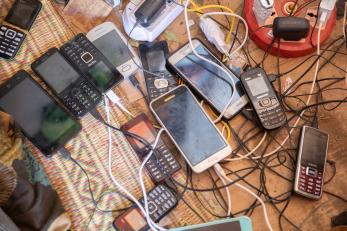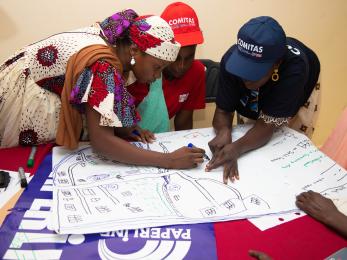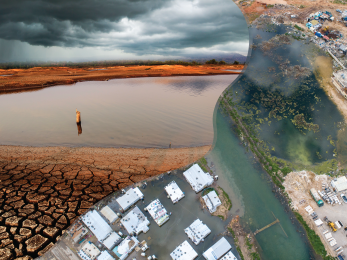Showing Up for Digital Peace
Five Good Practices for Addressing Social Media Weaponization

The Reducing Online Conflict Community (ROCC) addresses these challenges by catalyzing collaboration and generating contextually relevant approaches to addressing online threats and harms between digital peacebuilding stakeholders across the globe. By facilitating cross-sector convenings, maintaining a cross-cutting global network of actors addressing online harms, and breaking down silos among stakeholders, the ROCC creates a space to explore and address the complex dynamics of resilience and response to online drivers of conflict.
Emphasizing open communication and collaboration, the ROCC allows stakeholders from different backgrounds to share their expertise, resources, and perspectives. This collective effort is crucial in developing comprehensive strategies to combat hate speech, misinformation, disinformation, and divisive narratives spread through social media. As such, the ROCC plays a significant role in connecting diverse stakeholders through a digital peacebuilding lens, making a tangible impact in an era marked by unprecedented challenges posed by social media harms within conflict contexts.
In February 2024, the ROCC convened its inaugural workshop series in Abuja, Nigeria. The workshop in Abuja brought together around thirty individuals from twenty different organizations, each providing a distinct perspective based on the Nigerian context. The participants included representatives from social media platforms, advocacy groups, local CSOs, journalists, fact-checkers, social media influencers, and international NGOs. The variety of viewpoints in the room highlighted the multifaceted nature of the online conflict landscape in Nigeria. Under the facilitation and design of our partners at Reos Partners, workshop sessions were designed to emphasize collaborative principles and learning. Through scenario analysis and stakeholder mapping exercises, participants engaged in targeted discussions aimed at dismantling silos, building trust, and nurturing an ecosystem approach to addressing and preventing on and offline conflict.
Through an ongoing participatory process of co-design and collaborative dialogues between individual ROCC members, a set of five overarching good practices and minimum standards for professionals addressing the Weaponization of Social Media in their work. These good practices summarize several core themes of the ROCC convening in Abuja. These practices allow practitioners to assess their work through a digital peacebuilding lens, asking these stakeholders:
- What practices must we start to implement?
- What practices must we continue to implement?
- What practices must we stop implementing altogether?
While these good practices only scratch the surface of the complex needs of the resilience and response ecosystem of actors addressing online threats and harms, they are a starting point for actors in this space striving to make social media spaces safer and more socially cohesive for everyone.


